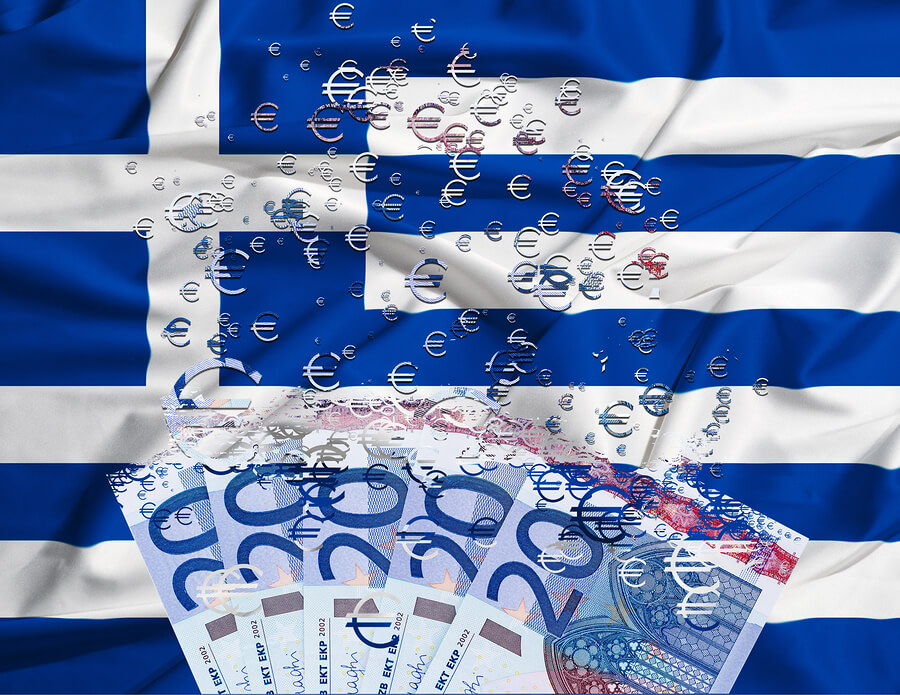As Greece officially defaults on loan repayments, IMF releases figures for Greek continuation of the Euro.

In April 2020, GoldNews.com.au came under new management, articles published before this time, such as the below, may not reflect the views or opinions of the current GoldNews.com.au team.
As Greece officially defaults on their previous loan terms, the IMF have concluded in order to sustain Greece until 2018, a total of 50 billion euro would need to be provided. The only other alternative would be a short term loan of 29 billion which is estimated to last Greece through to October 2016.
Greece seems determined to remain with the euro, however one must question whether it is a wise move, many analysts are calling any past and additional loans to Greece ‘bail outs’, however a bail out is usually a term to describe an unconditional loan, absorbed within the economy of the lender, the euro loans to Greece so far have not been provided unconditionally, hence the term bail out should be avoided. These loans amounts to nothing more than further debt for Greece, and as any sane person will realise, trying to cure 2 failed bouts of debt with more debt will never get anywhere.
A smarter idea for Greece would likely be to remain with the EU, but opt out of the euro currency, or even run a dual currency system to give them further control over their spending by reducing reliance on foreign debts. This method however would only work if Greece was truly willing to adopt a move towards enticing foreign investment and a non-protectionist style approach to their economy.
With the currently elected government being based mainly around a communist / socialist ideology, it seems unlikely the government will go towards deregulation with spending cuts, and more likely to the source of the initial problem, protectionism in their economy. With all other European union members operating for the most part under a dual capitalist / socialist system, Greece seems to have learnt little from their not so distant neighbours, who suffer little worry from any serious internal economic problems.
The question must be asked though, if Greece is unwilling to run their own independent currency, either alone or alongside the euro (as Poland has done), is it wrong to consider this the actions of a country with no future direction in terms of financial stability.
Simply taking more money from the EU or IMF when all previous loans have resulted in the same situation, seems to be an action one would take to avoid all personal economic responsibility. The euro can not afford to have countries taking endless loans with what appears to be no intent to ever repay.
The stand off we are seeing at the moment is due to the ‘Grexit’ opinion, in which Greece should create an independent or de-facto dual currency system, while proceeding towards deregulation and welfare based spending cuts. It is not a surprise this will not be a popular move for Greece, and without a mindset change in government and acceptance of change by the population, there is little the people of Greece can do on their own to recover their economy.
The outcome of this situation is seeming to be heading towards another Euro loan for Greece, rather than a full Greek exit (Grexit), however to say Greece are out of other options would be a mistake.
Blame Game: Commentators blame EU for Greek debt.
Although being part of the EU, the EU member states govern Greece very minimally in terms of the main reforms required: the requirement to limit their spending, the process of moving away from protectionism and better management of their welfare system.
If the EU is to blame for the debt, then by that same reasoning, a Greek exit from the EU to their own independent currency should solve all problems. To believe this is extremely naive.
Even if Greece is to limit further euro debt by creating their own currency, with spending far from under control nothing will change, and it will even likely make matters much worse.
What it will provide however is an opportunity, albeit an unpopular one, to completely reform the country to a point where it may one day be able to re-enter the Euro currency system once more, with a more sustainable economy and future outlook. If Greece has the capability to be independent, and is truly looking to prove their worth, this is the only direction that makes sense at this time.
The problems here are a Greek problem, and should result in a Greek solution. For now we do not see the government of Greece doing more than argue endlessly for another loan, with better interest and repayment terms than before, all off the backs of EU member states, from whom they intend to learn little that may assist their future.

















Leave a Reply